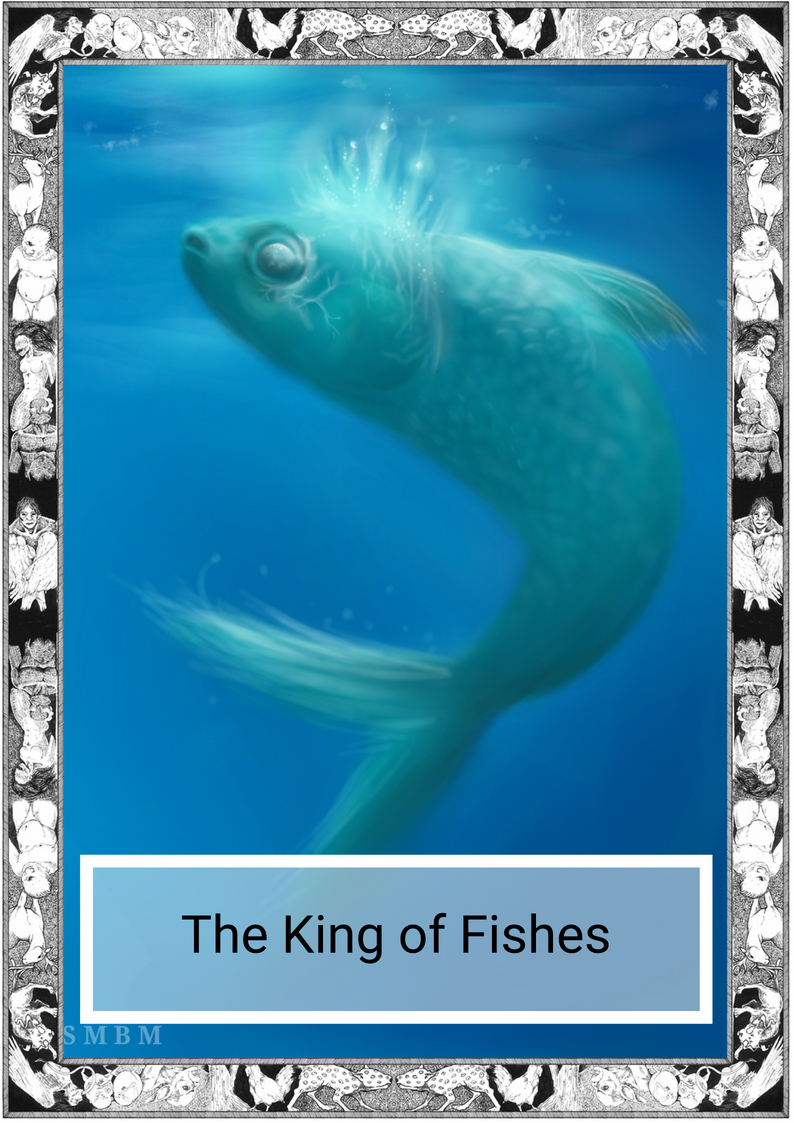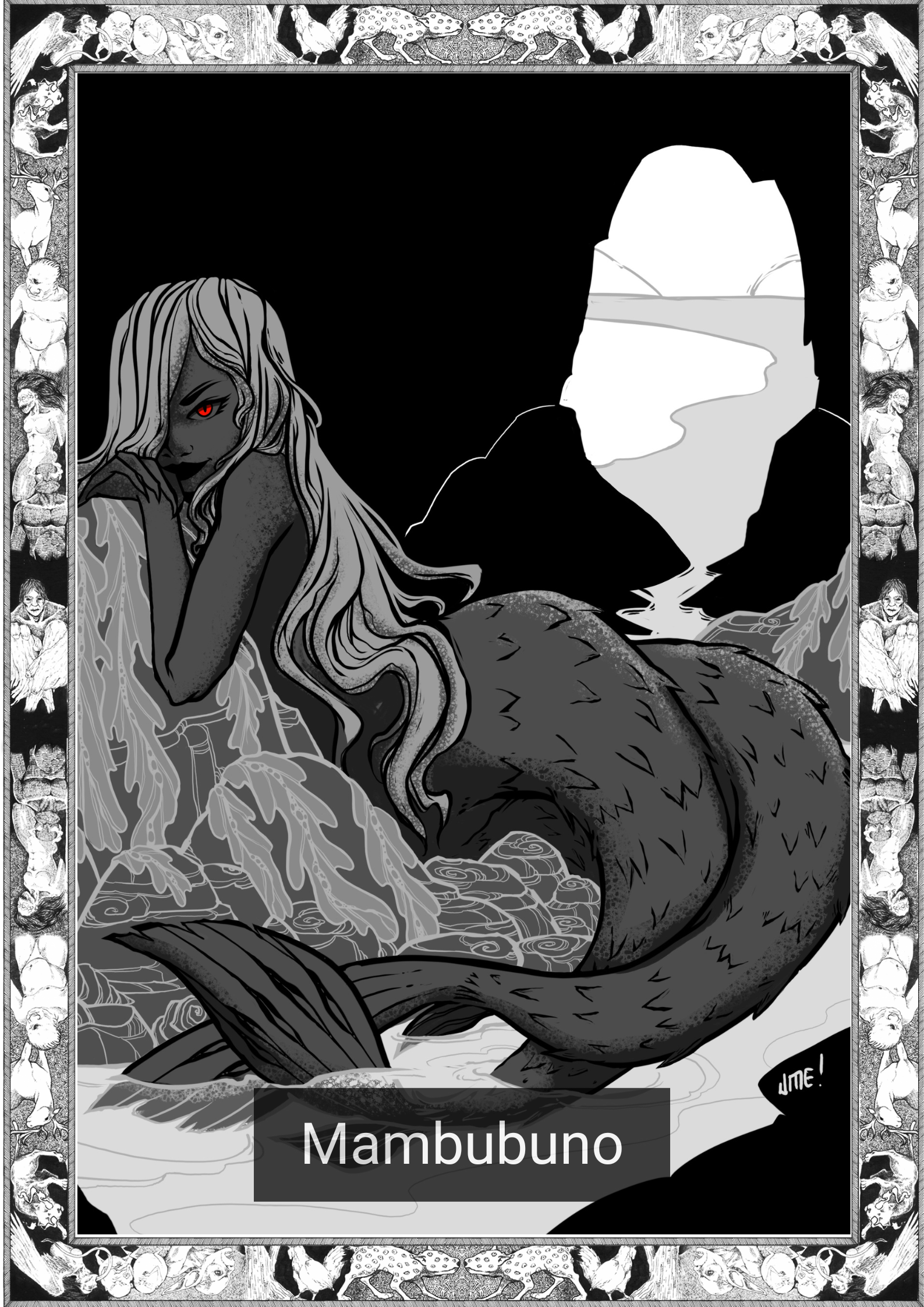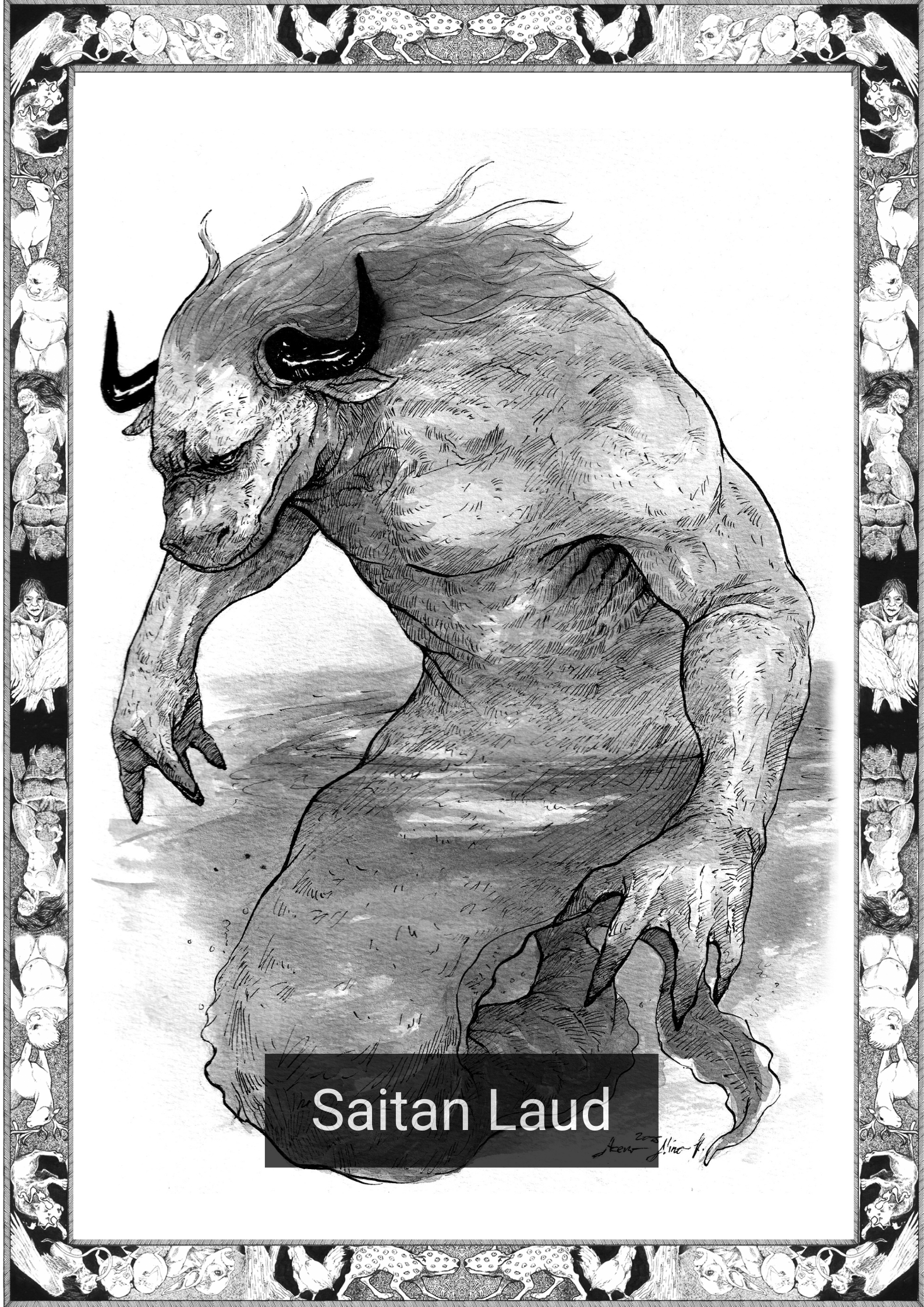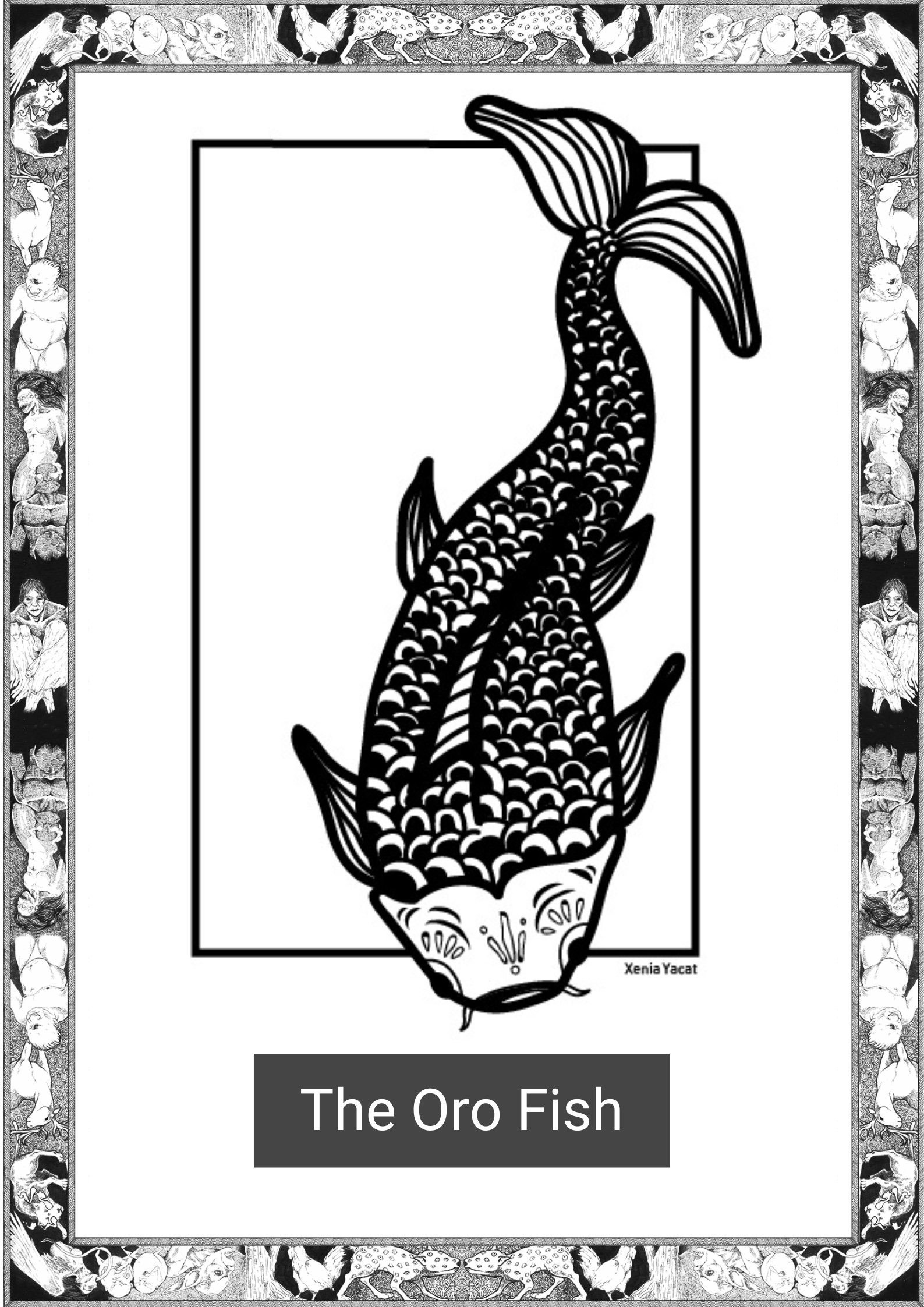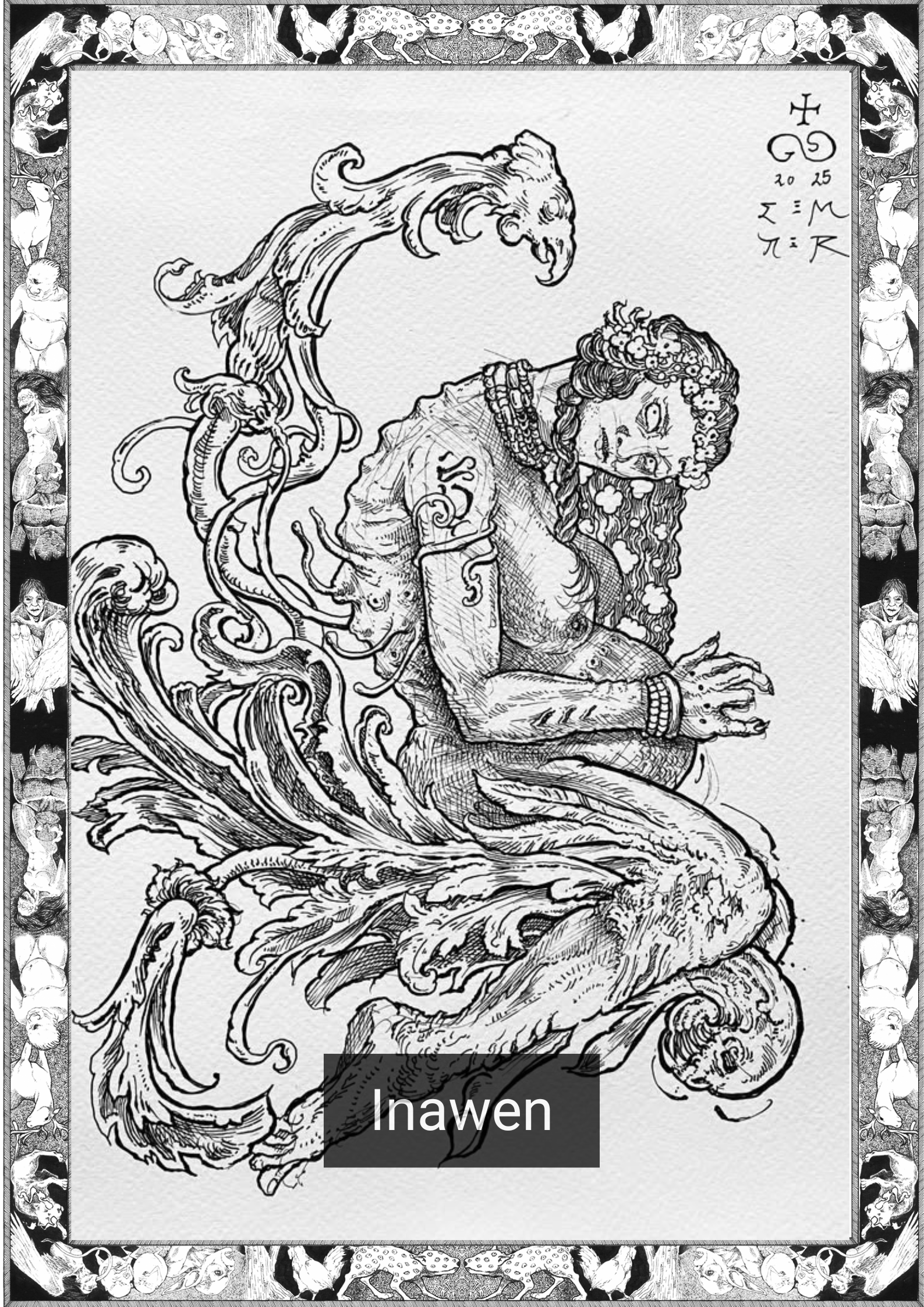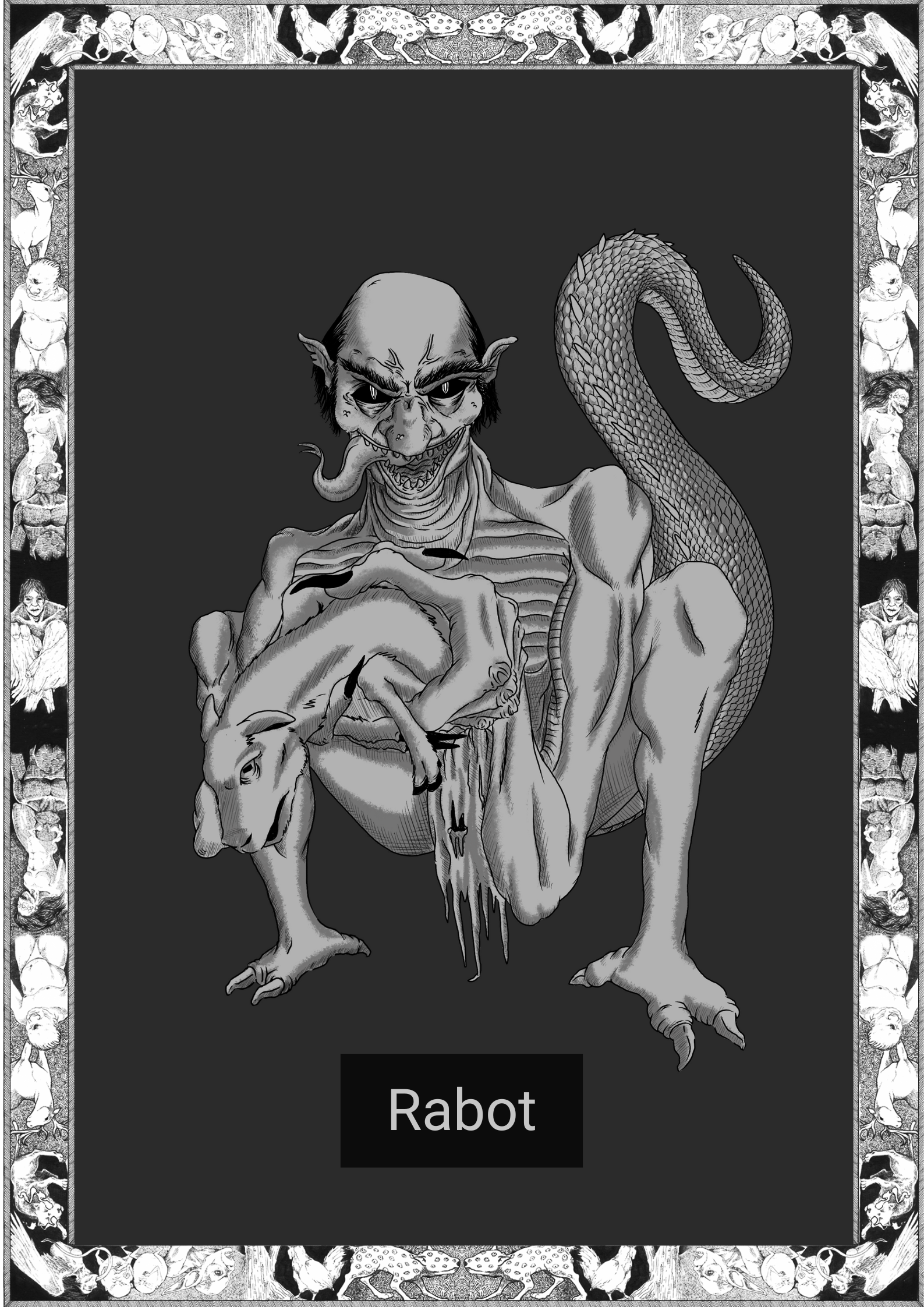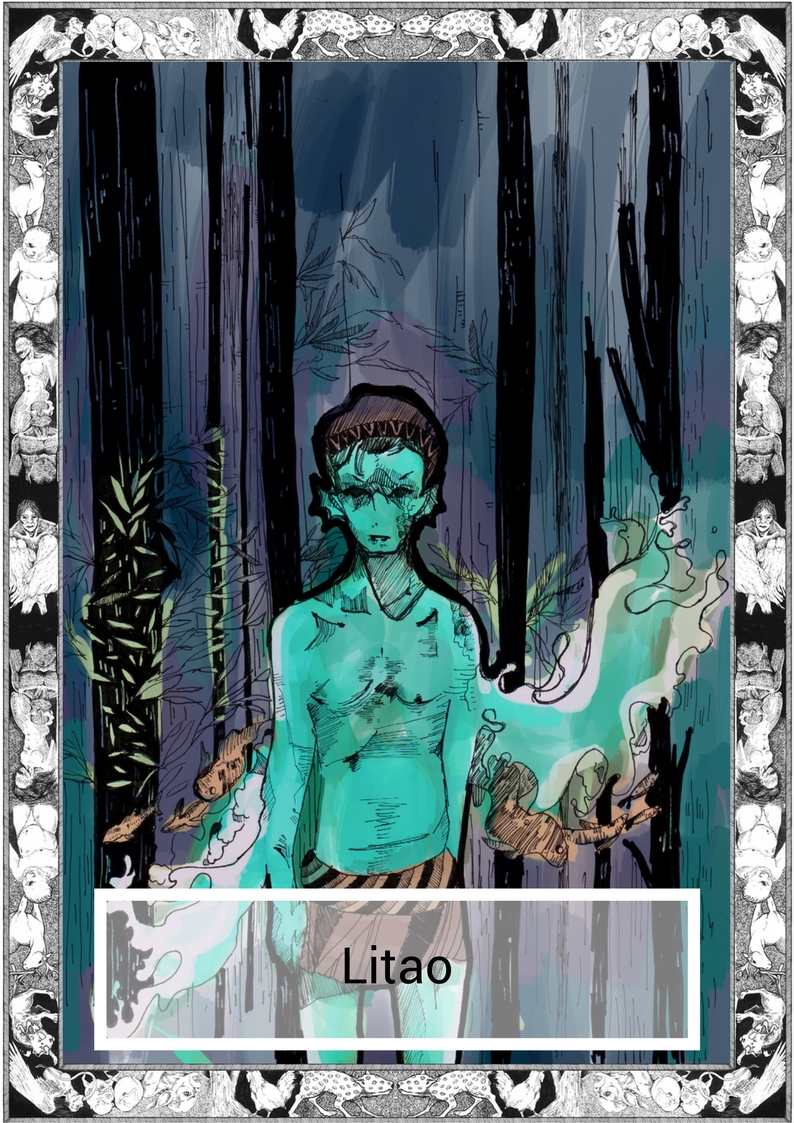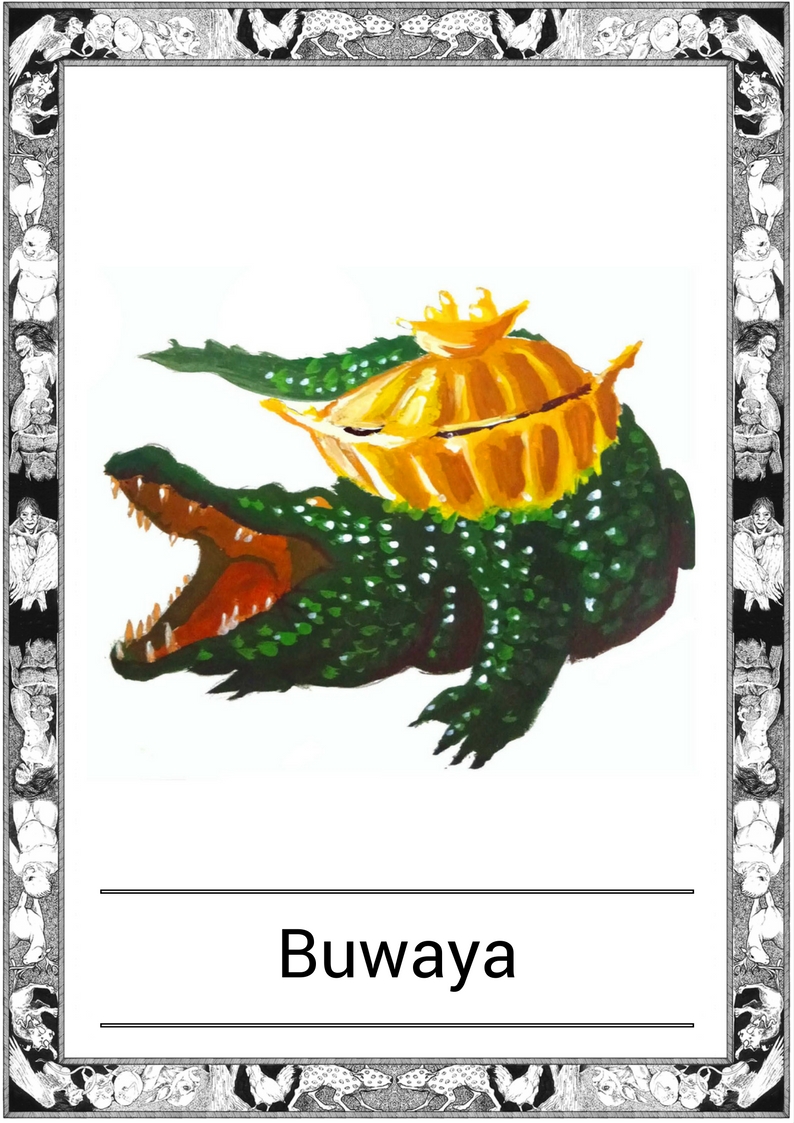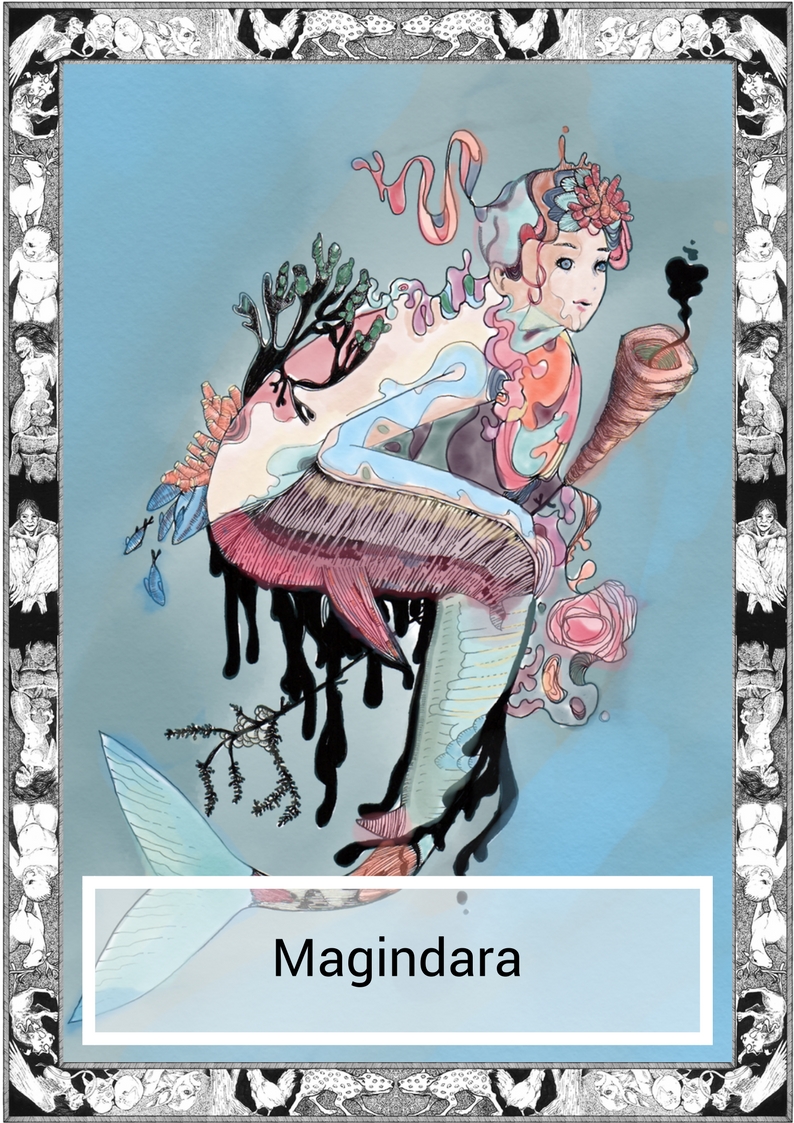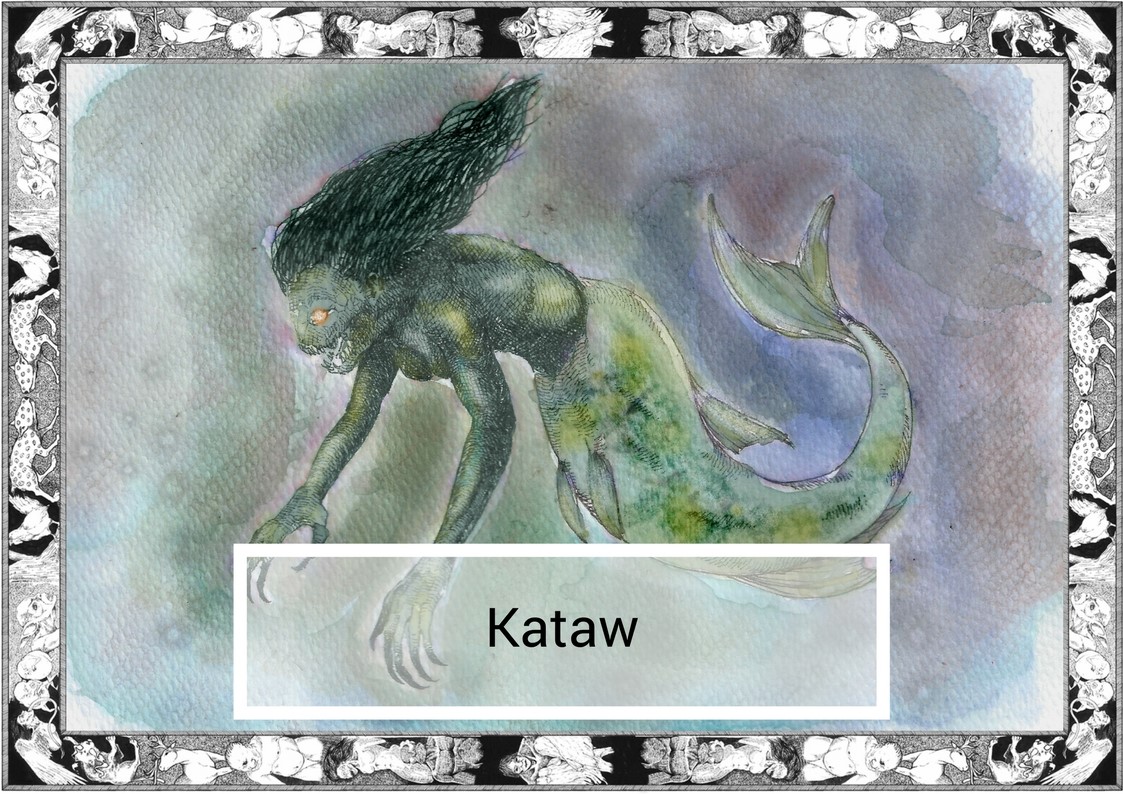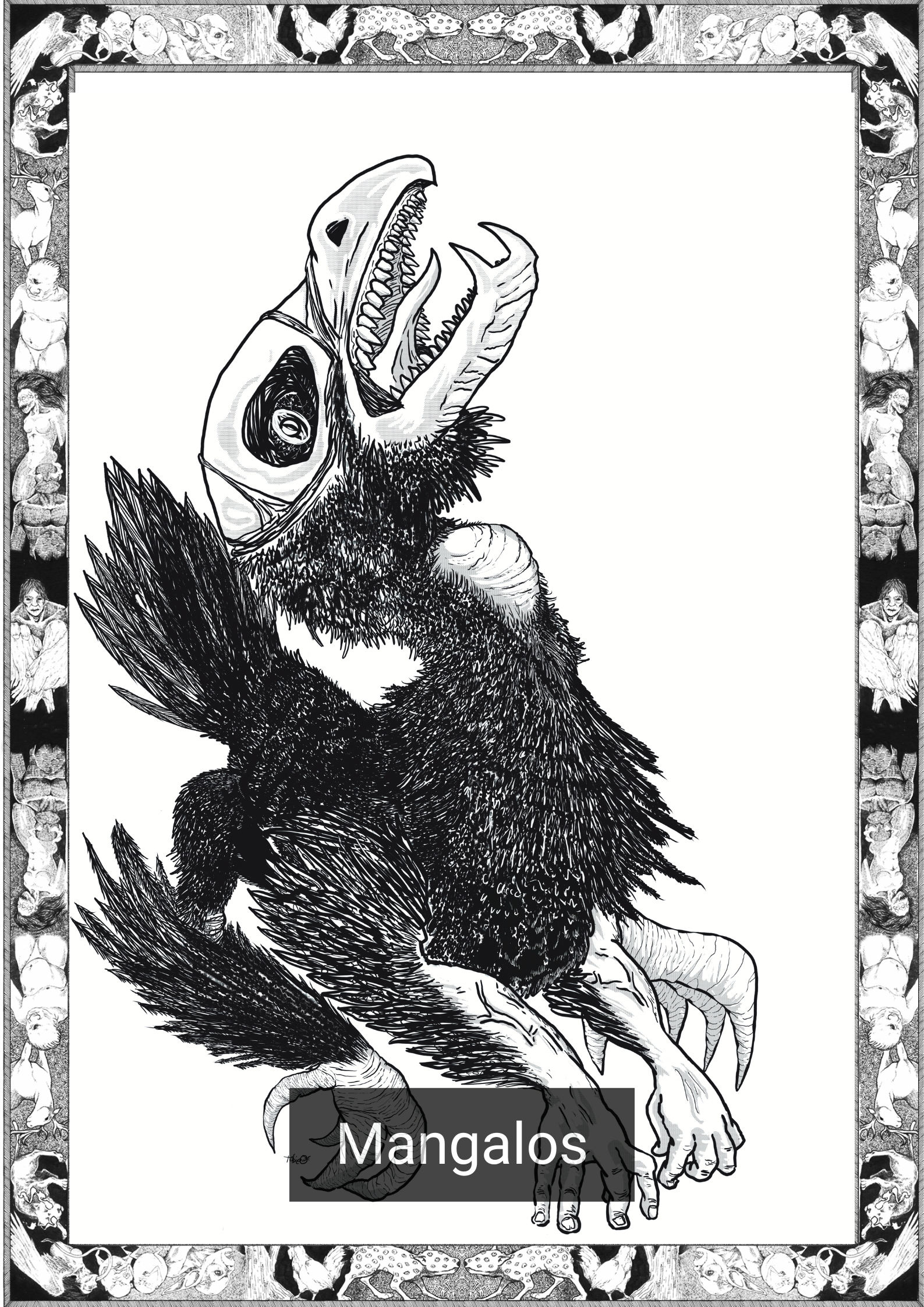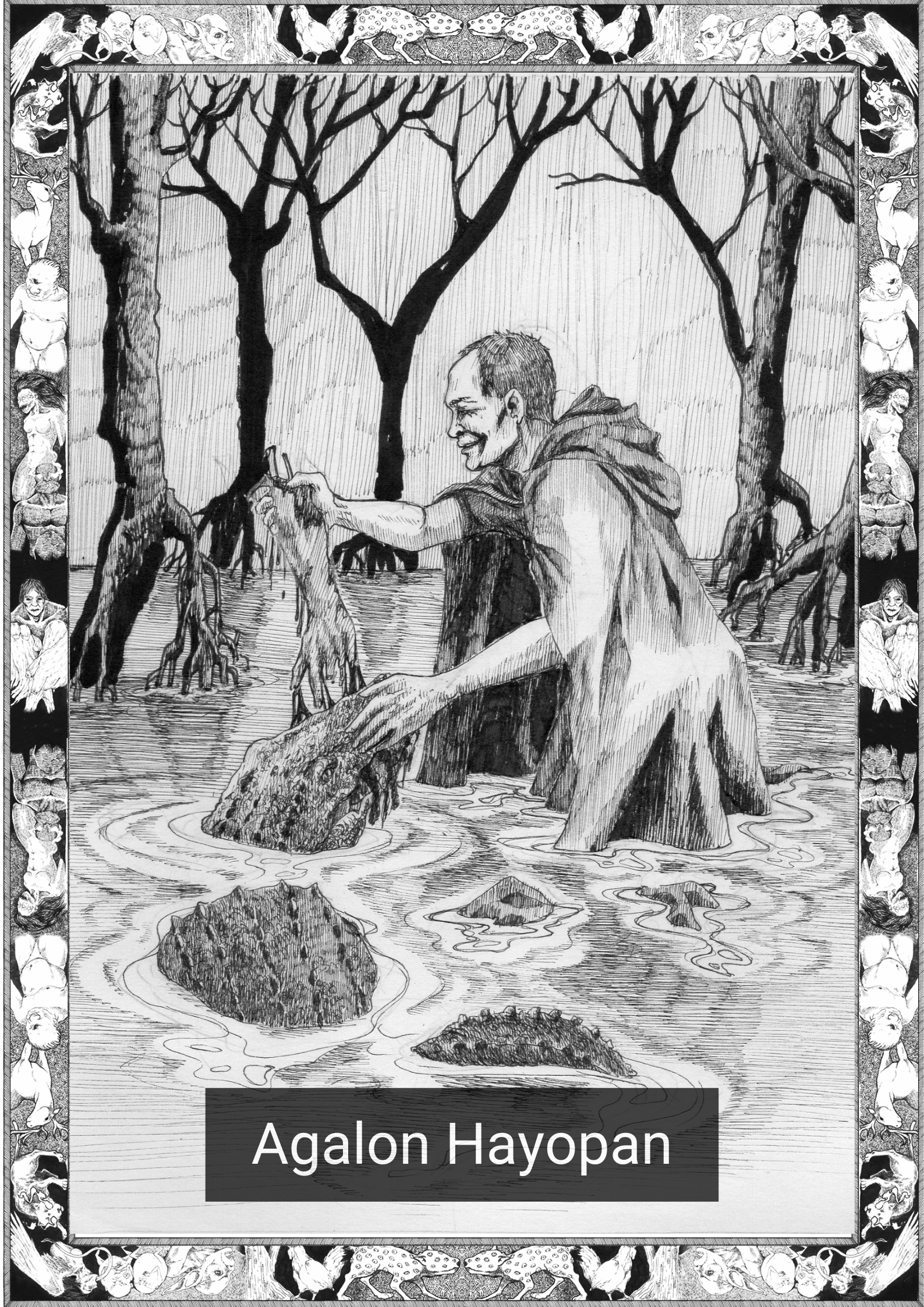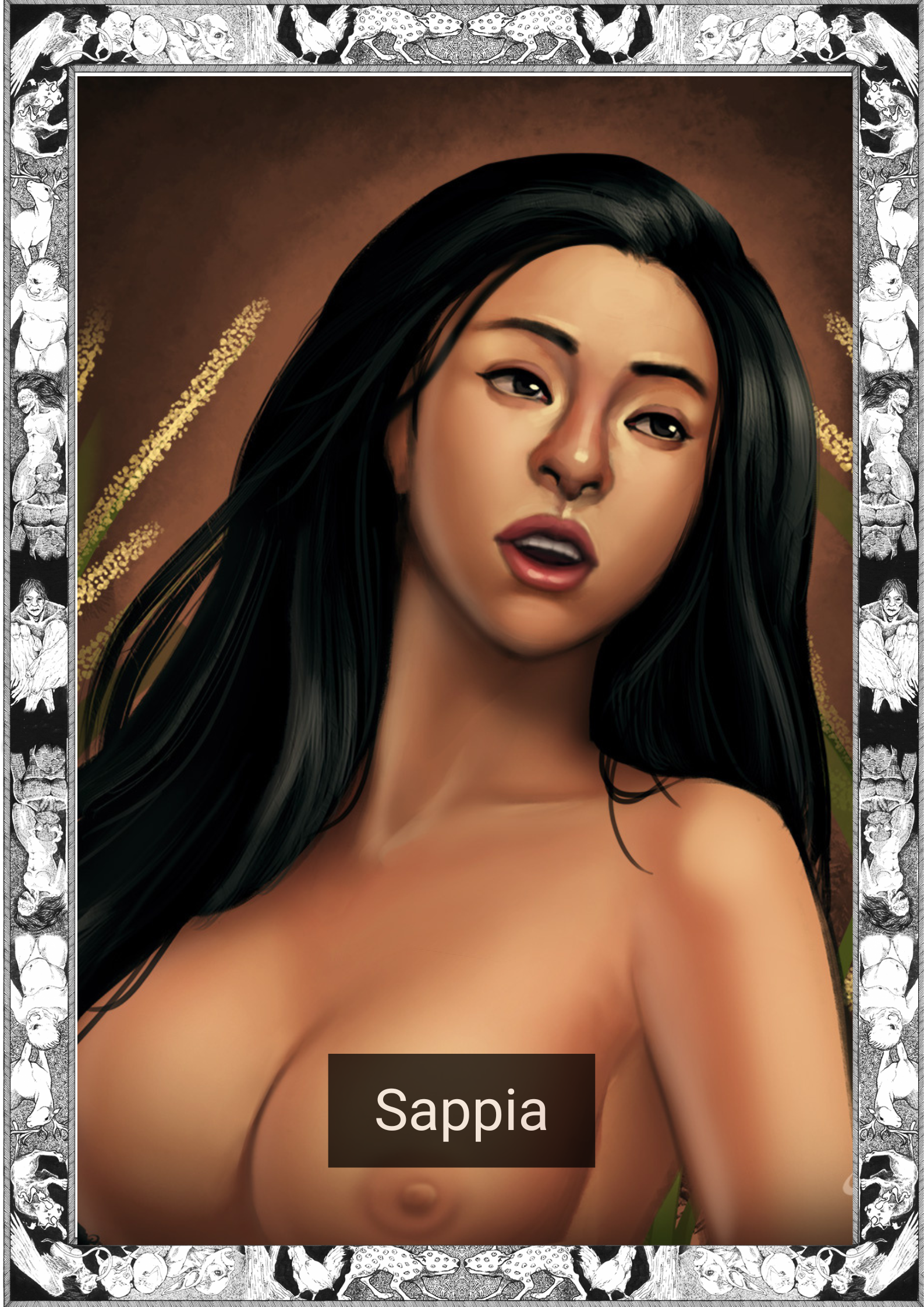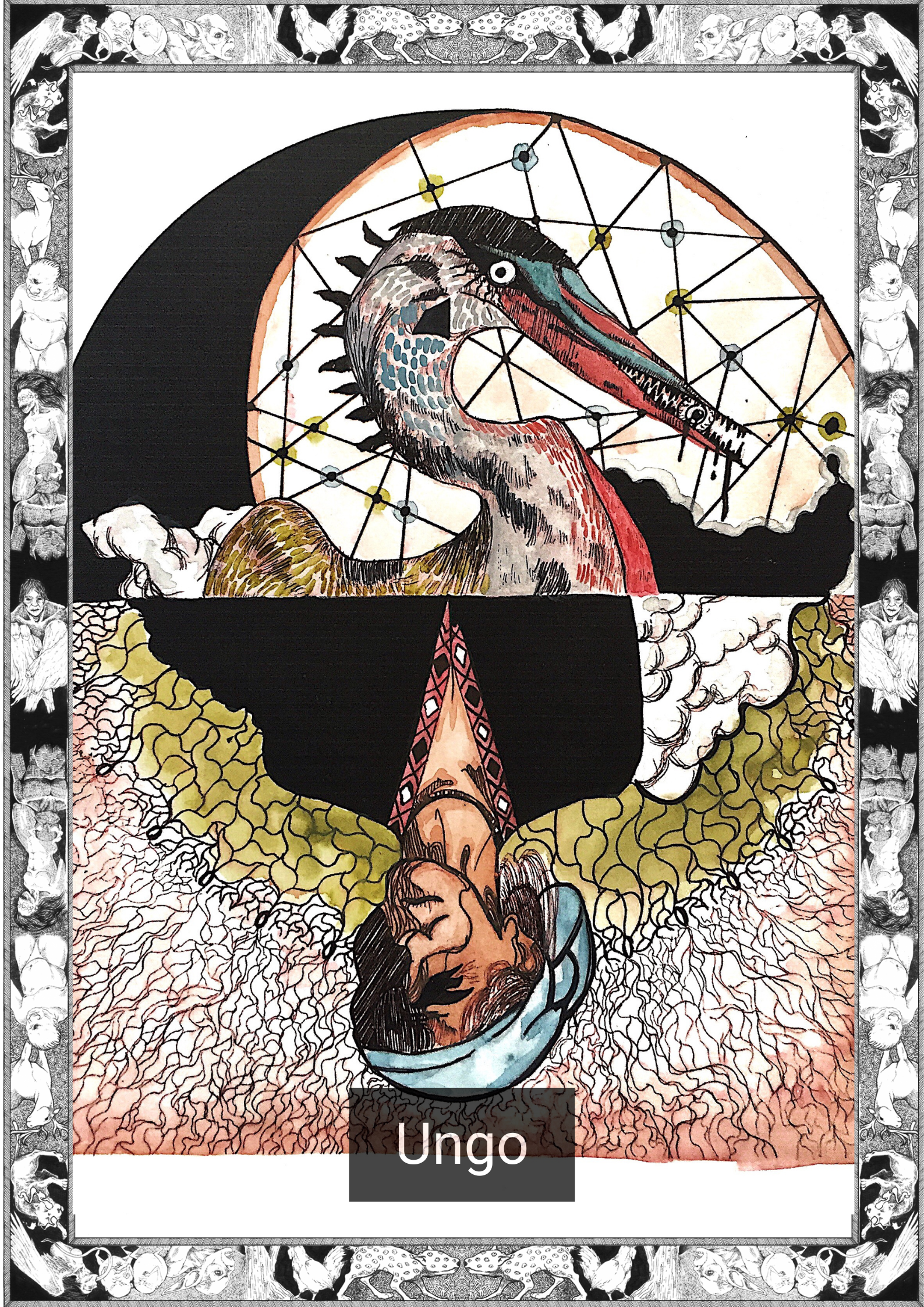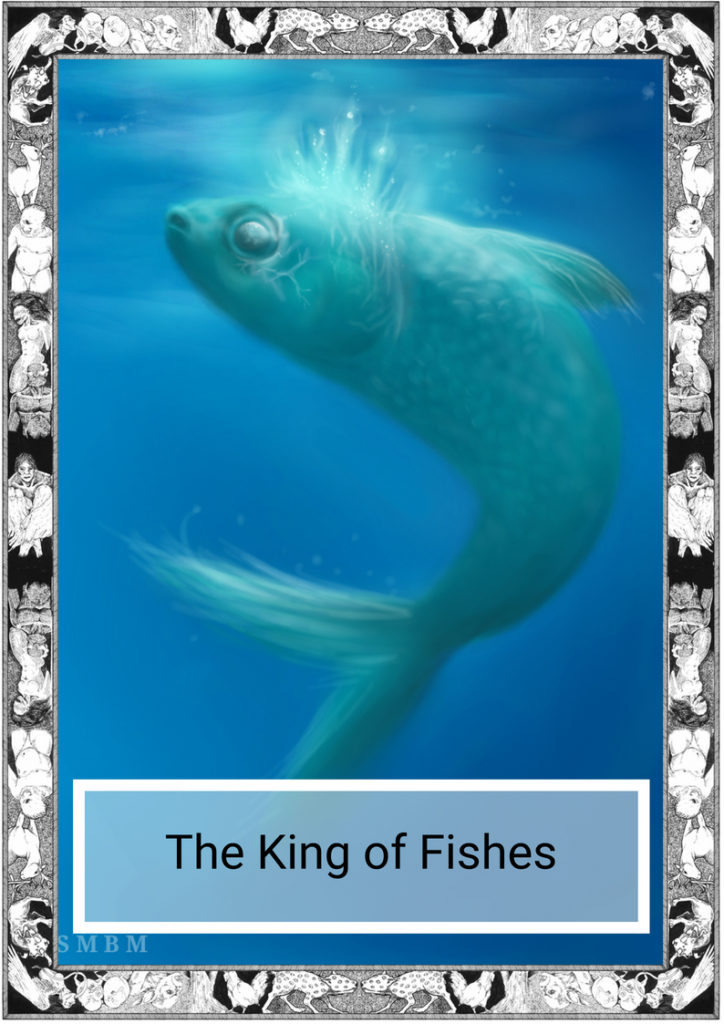
*Note this story is in Cuyonon
Adi ‘ang mga Isda (The King of Fishes)
Kaleba imong kalaem kondan deng lagi ang mga isda, tama ra manda dato kaisan. Apang mi isarang isda nga labaw sa tanan, tana maman ang Adi ‘ang mga Isda nga agaistar sa idalem i’ ang mga daloyon ig agadomara sa indi masegkad nga kadadalemen i’ ang dagat.
Kataman sa mga tao nalipatan den nga makagagaem ang Adi ig ingwawara nanda anang dengeg, apang nasapoan nanda ra nga ang imong ingtipanan sa Adi indi enged mabari.
Mi istoria natetenged kanda Juan ig Juana nga mamang akasalapo i’ isarang liksion. Sa mi baybay sanda agaistar ig marakeng bolan den andang ingelat nga kaloyan i’ bata.
Agsirak kananda ang kapalaran. Pagkatapos i’ dinagong elat madodogangan deman ang magbarata.
Sa anang pagkabedes, agpanamken si Juana sa bangos. Si Juan i’ na nga mayad nga asawa, agapalaod agod kabebel i’ isdang naliliagan anang asawa.
Isarang adlaw, ara enged mi nadakep nga bangos si Juan sa anang laya. Aggorang tana sa anang baroto, mabegat ang leba nga agaisip nga magaoli tanang ara’ dara sa anang asawa.
Sa tenga ‘ang kasilinsio, mi bosis nga agtawag ki Juan. Nagbalikid tana ig nagolpian sa isarang bangos nga mi korona.
“Indi ka agadlek,” makon ang Adi ‘ang mga Isda, “tatawan ta kaw i’ tanang bangos nga imong kaministiran apang bilang bales itataw mo kanaken ang imong bata sa anang ikapitong kinabata.”
Aglespad ang oyen i’ Juan. Saken indi na itataw anang kagorangan sa Adi ‘ang mga Isda apang naisip na nga mapopongaw i’ mayad si Juana kong ara tana’ dadaraen. Dadi ang panimpo nga malaka ang bangos ig indi maelaman ni Juan kong kadadakep tana’ bangos kong indi tana itabangan i’ ang Adi.
Agpaeen den da si Juan sa Adi ‘ang mga Isda. Ig sigon sa anang tinipanan, ingtawan manda i’ ang Adi si Juan i’ indi mabilang nga bangos. Dorong ka rake ang nadadakep ni Juan maski tapos don agbata si Juana.
Ang bata ingingaranan nandang Maria ig si Maria palangga nanda ingan. Datong magabot don ang ikapitong kibata i’ Maria agpakiloy si Juan sa Adi ‘ang mga Isda nga waraen den anang tinipanan. Ara enged ioman anang disision ang Adi nga agkon, “ang tinipanan, tinipanan.”
Indi ka kapangindi sa Adi.
Agoli si Juan, nabong anang tagiposon. Ang adlaw dang dato, ingbawalan nanda anang bata nga magpakon marapit sa dagat.
Tegka isarang adlaw, maintras agapamonak si Juan ig Juana sa mi soba, mi dorong ka tinlong baroto ang agabot. Makaispanta ingan ang baroto nga agdaragoyon ang mga tao sa baybay agod tawtawen dato. Agpakon da si Maria sa baybay tenged sa anang pagosisa.
Golping mi mabael nga daloyon ang agsampok sa baybay ig ingbeteng si Maria papakon sa laod.
Agdalagan ang mga tao papakon kanda Juan ig Juana agod ibarita ang nagkandainabo apang ori ren ang tanan. Naeleman nandang darwa nga ingdara ren i’ ang Adi ‘ang mga Isda andang bata.
Sa kabaskeg i’ andang gegma sa andang bata, dinagon ang andang gabi-gabing pagpakon sa baybay nga agalaem nga matirapan man lamang si Maria.
Ingsabat andang mga pangamoyo datong isarang gabi nga masanag ang bolan. Mi nakita sandang daraga nga ang lawas katengan tao, ang katengan bangos. Saka tirap lamang sa anang malabeg ig mangitit nga bok naelaman nanda ren nga dato maman andang bata nga dadi ingaangken den i’ ang dagat tegka sa ara teregkan.
———————————————————–
English Version
Maybe you think that fishes were always the way they are, and in some cases you would be right. But there is one fish above all others, he is the King of Fishes and he lives deep beneath the waves, using his authority to govern the deep fathoms of the oceans.
Most humans forget that the King is royalty and seek to deny him his due, but they learn eventually that there is no breaking an oath made to a royal.
There is the tale of a couple named Juan and Juana that learned this lesson all too well. They lived by the seaside and waited through the seasons to be blessed with a child.
Fortune smiled upon them after many years and they were finally expecting a new addition to their family.
During the pregnancy Juana would crave bangus (milkfish) to eat. Juan was a faithful husband and would go far out to sea to catch the fish his wife enjoyed.
Then came a day when Juan was unable to find any bangus in his nets. He sat in his boat, crestfallen at the prospect of coming home empty handed to his wife.
Out of the silence a lone voice called for Juan. He turned around and was surprised to find a bangus with a crown.
The bangus introduced himself as the King of Fishes and asked why Juan fished only for bangus. He wondered why he would see less and less of his subjects in the water.
Juan explained that his pregnant wife craved bangus every day. He related his sorrow surrounding his empty catch.
“Fear not,” said the King of Fishes, “I will provide you with all the bangus you will ever need, but in return you must give your child to me when it turns seven years old.”
Juan face flashed with shock. Surely he couldn’t give away his firstborn child to the King of Fishes, yet he thought to his wife, devastated that Juan would come up empty. It was the season in which bangus was scarce and Juan didn’t know if he would be able to catch any without the King of Fishes’ help.
Juan eventually agreed to the King of Fishes’ terms and, true to his word, the King supplied Juan with more bangus than he could count. So bountiful was Juan’s catch that he continued to bring home bangus even after Juana had given birth.
They named the child “Maria” and they loved her very much. When the girl turned seven Juan begged the King of Fishes to release them from his promise. The King of Fishes did not waver and only said, “A promise is a promise.”
And a king will not be denied.
Juan returned home, his heart shattered into a million pieces. That day both Juan and Juana forbade their lovely daughter to go near the sea.
That is, until one day, when Juan and Juana were doing laundry by the river. There came a magnificent boat. So majestic it was that people gathered to the seaside to take in the beautiful sight. Maria, pushed by her curiosity, joined the people by the seaside.
In an instant, a giant wave rushed to the shore and dragged Maria out to sea.
The people rushed to Juan and Juana and told them about what happened, but it was too late. They both knew that the King of Fishes had taken Maria.
Still, their love for their daughter was strong, every night for years they would stay by the shore in the hopes of catching the merest vision of Maria.
And their prayers were answered on a moonlit night when they saw a woman whose body was half woman and half bangus. One glimpse of her long, black hair and they knew that it was their long lost daughter, now forever belonging to the waves.
————————————————————–
*Cuyonon is a regional Visayan language spoken on the coast of Palawan, and the Cuyo Islands in the Philippines.
Written by Karl Gaverza
Cuyonon Translation provided by Ryan D. Ibañez
Copyright © Karl Gaverza
Translation Copyright © Ryan D. Ibañez
Adapted from “The Mermaid” in Philippine Folk Literature: The Legends. Eugenio. 2002.
The King of Fishes Illustration by Pia BMorante
